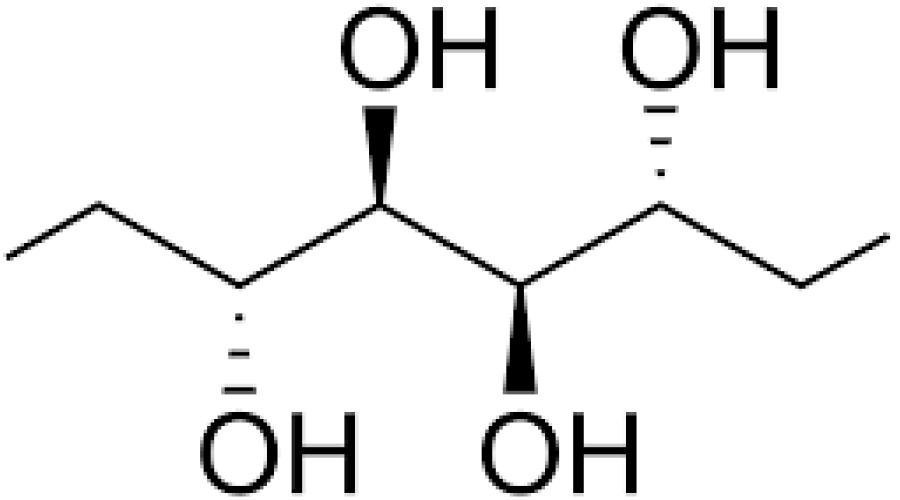
Mannitol and Peptides: An Essential Guide for Research Purposes
For research purposes, Peptides are short chains of amino acids linked by peptide bonds. In biochemistry, they have been studied for numerous potential applications, including their role in healing, recovery, and performance enhancement. However, peptides require careful formulation and preservation to maintain their integrity and functionality for research. A compound that plays a critical role in this process is 'Mannitol'.
In this comprehensive guide, we explore the vital role that Mannitol, a sugar alcohol, plays in peptide products, drawing on insights and information from our expert team at UK Peptides. This information is aimed at researchers and scientists studying peptides and their characteristics. Just so you know, all the products sold by UK Peptides are intended for laboratory research use only and not for human consumption.
Peptides: What Are They?
Peptides are molecules of two or more amino acids linked in a chain. These chains can be short or long, and a peptide's sequence of amino acids determines its characteristics. They have been the subject of much scientific research due to their diverse and complex nature.
Peptides are often confused with proteins. While both are made of amino acids, peptides typically contain fewer than 50 amino acids, whereas proteins control more than 50. Peptides also have a more straightforward structure compared to proteins. Despite their differences, both peptides and proteins play vital roles in the body and are crucial for its functioning and regulation.
It’s also worth noting that peptides have a wide variety of types, including milk peptides, ribosomal peptides, nonribosomal peptides, peptones, and peptide fractions. Every kind of peptide has unique characteristics and potential uses, making them a rich field for research and development.
What is Mannitol?
Mannitol is a type of sugar alcohol frequently used in the pharmaceutical industry and scientific research. It is a popular additive in peptide formulation due to its robust, multi-faceted functionality. Mannitol plays various roles in peptide products, from ensuring stability to enhancing solubility.
Given its beneficial properties, Mannitol is also used in other applications outside peptide formulation. For example, it is commonly found in chewing gum and candies as a sweetener that does not contribute to tooth decay. In the medical field, it is sometimes used as a diuretic to help reduce swelling and pressure inside the eye or around the brain.
The Importance of Mannitol in Peptides
Stability Enhancement
Peptides are delicate and prone to degradation if not preserved correctly. Mannitol's first role is to ensure the stability of peptides by preventing their aggregation and preserving structural integrity. This stability is essential during processes like lyophilisation (freeze-drying) and storage. By preventing peptide degradation, Mannitol helps maintain the peptides' bioactivity, ensuring their efficacy remains intact.
Lyophilisation, also known as freeze-drying, is a typical process used in peptide preservation. It involves freezing the peptide and reducing the surrounding pressure to allow the frozen water in the material to sublimate directly from the solid to the gas phase. However, this process can cause stress to the peptides, leading to degradation or loss of bioactivity. Mannitol helps to protect the peptides during this process, maintaining their structure and function.
Solubility Improvement
The second significant benefit that Mannitol provides is enhancing the solubility of peptides. Making peptides more soluble makes it easier to dissolve and reconstitute them in a suitable solvent, such as water or saline. This feature is particularly beneficial when the peptides are being prepared for administration.
Solubility is a critical factor in the effectiveness of peptides. If a peptide is not soluble, it may not be easy to deliver it effectively. Furthermore, poor solubility can lead to aggregation, which may affect the bioactivity of the peptide. Therefore, by improving solubility, Mannitol helps enhance peptides' effectiveness.
Moisture Protection
Another beneficial property of Mannitol is its hygroscopic nature, which can attract and hold water molecules from the surrounding environment. This property protects peptides from excess moisture, which could lead to degradation or loss of potency, ensuring the quality of peptides remains uncompromised.
Moisture can be detrimental to peptides, causing hydrolysis, leading to the degradation of peptides. By attracting and holding water, Mannitol helps to create a protective barrier around the peptide, helping to maintain its integrity and potency.
Improved Flow Properties
Mannitol is also valued for its excellent flow properties, making it easier to handle and process during manufacturing. It also enhances the flowability of peptide powders, which is vital for accurate dosing and dispensing.
In manufacturing, flowability is a critical factor. Flowability can lead to difficulties in manufacturing and consistency in the final product. By improving peptide powders' flow properties, Mannitol helps ensure a consistent, high-quality product.
The Visible Presence of Peptides
Without the presence of Mannitol or other excipients, peptide vials may appear to be empty. The small amount of Mannitol used ensures that users can visually confirm the presence of the peptide product in the vial, providing peace of mind that the product is indeed there and ready for use.
This is particularly beneficial in research settings, where visual confirmation of the product can help to ensure accurate dosing and dispensing. It also reassures the product's presence and integrity, supporting the quality assurance process.
Conclusion
At UK Peptides, all our peptide products contain trace amounts of Mannitol, underpinning their stability, solubility, moisture protection, and visual confirmation. By understanding Mannitol's critical role in peptide preservation, users can appreciate the complexity of peptide products and the necessary measures taken to ensure their quality and effectiveness.
